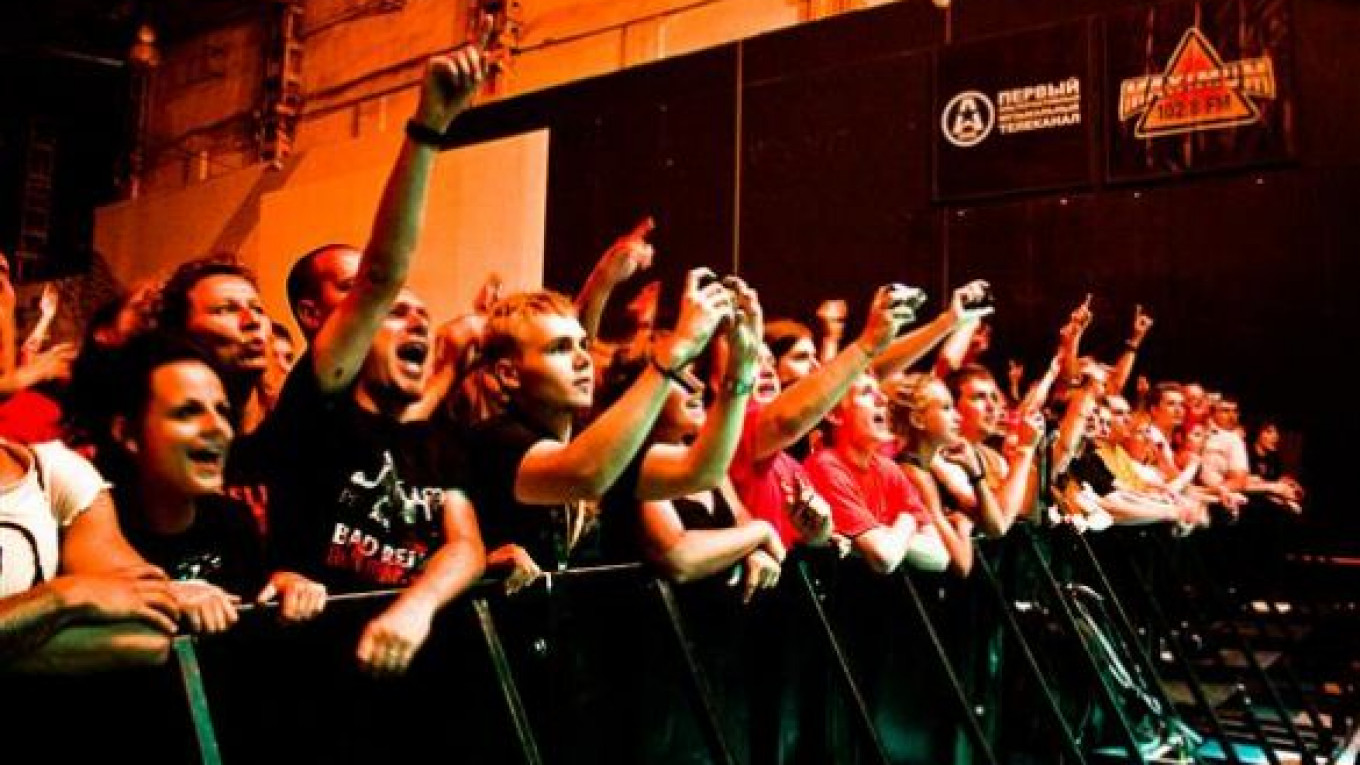Glavclub, which revolutionized the St. Petersburg club scene as the city's largest venue, will return to its home city, according to its founder Igor Tonkikh.
The Moscow-based Tonkikh — now busy running a recently opened Glavclub in Moscow — said he is looking for a new location for the St. Petersburg extension of the project, which had originally been conceived as a network of concert venues across Russia.
"Glavclub will reopen in St. Petersburg and it's very likely that it will happen before the end of the year," Tonkikh said.
The venue, which had been operating in the city for four years, closed for renovation following the Dec. 9, 2012 concert by the Canadian Christian-rock band Thousand Foot Krutch. It was expected to reopen in March 2013.
Four months passed, after which the club finally made a sudden announcement that it would not reopen due to noise complaints, expensive renovations and other problems with the club's location. The concerts scheduled at Glavclub for 2013 were either moved or cancelled.
Speaking last week, Tonkikh said that the main reason behind the closing was a delay in investment, rather than complaints.
"Because the investments did not materialize, we worked for another six months and, having decided that working in a highly competitive field without upgrading the venue had no future, closed the project.
Tonkikh also dismissed as a "conjecture" the speculation that the real reason was revenge on the part of the authorities for the Pussy Riot Fest, a charity concert for the two imprisoned members of the feminist punk band Pussy Riot held at Glavclub in September 2012, featuring the Russian stadium rockers DDT.
At one point ahead of the concert, a senior police official demanded that the organizer move to another venue due to the proximity of the Alexander Nevsky monastery, located about 1 kilometer away, while a large number of police officers were deployed near the venue during the event. A few fans were detained after the show for allegedly jaywalking.
Despite the closure, Glavclub has maintained a presence in the city, bringing some of the acts that play at the Moscow club to other venues in St. Petersburg. Most recently, a concert by Babyshambles at local venue A2 in November 2013.
According to Tonkikh, Glavclub St. Petersburg may open either at an entirely new location or in an already existing venue.
"There are [a number of] suitable places in the city, so we are prepared for different scenarios," he said.
Four people who were part of the venue's local team now work for Glavclub Moscow via the Internet. The sound equipment will be rented from a production company, as was the case in the past, he said.
The old Glavclub opened in St. Petersburg with a bang on Nov. 7, 2008. The day chosen for the opening was the main Soviet holiday, October Revolution Day, while the act selected to launch the club was one of the city's most popular bands, Leningrad. With a capacity of 2,500, the venue hosted some of the most popular Russian and international rock acts, while remaining open to more innovative British and U.S. indie rock bands.
"We definitely provoked very serious movement in the market and took the [St. Petersburg] club scene to a fundamentally different level," Tonkikh said.
Despite having existed for only four months, Glavclub Moscow became one of the leading clubs in the city. According to Tonkikh, it is already Russia's top venue.
"There are three large venues [in Moscow] today: Glavclub, Arena and Stadium. It is enough to visit the websites of the three to see which one looks the most convincing," Tonkikh said.
He cited a concert by Offspring and Babyshambles in October 2013, and an upcoming concert by Morcheeba due in March as some of the most important events that took place or are scheduled to be held at the venue.
Tonkikh said he chose St. Petersburg as the original location for Glavclub by chance, when a defunct industrial facility happened to be available in St. Petersburg, rather than in Moscow. Six years later, Tonkikh is set to return.
"I believe that we will re-emerge in St. Petersburg later this year, no doubt. Our presence will grow from one-shot events at different venues to the opening of our own venue," he said.
Contact the author at [email protected]
A Message from The Moscow Times:
Dear readers,
We are facing unprecedented challenges. Russia's Prosecutor General's Office has designated The Moscow Times as an "undesirable" organization, criminalizing our work and putting our staff at risk of prosecution. This follows our earlier unjust labeling as a "foreign agent."
These actions are direct attempts to silence independent journalism in Russia. The authorities claim our work "discredits the decisions of the Russian leadership." We see things differently: we strive to provide accurate, unbiased reporting on Russia.
We, the journalists of The Moscow Times, refuse to be silenced. But to continue our work, we need your help.
Your support, no matter how small, makes a world of difference. If you can, please support us monthly starting from just $2. It's quick to set up, and every contribution makes a significant impact.
By supporting The Moscow Times, you're defending open, independent journalism in the face of repression. Thank you for standing with us.
Remind me later.






